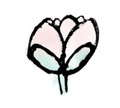“Where are the Asian-American women with breast cancer whom I could talk to?"
|
That question kept popping up after I was diagnosed in 2009 with Stage 1 breast cancer. Through personal referrals, scores of Caucasian women—complete strangers—graciously spoke on the phone with me regarding their choice of treatment and career-altering changes they made. One woman even sat next to me in the waiting area of an airport, saw the bandana wrapped around my bald head, and asked "Chemo?" She then offered to show me her reconstructive surgery in the bathroom while we waited for our connecting flights!! Yet, despite my gratitude for their advice, I still yearned to speak to Asian American women with breast cancer, particularly those who were my age—48. Although born in the U.S., I was raised with traditional Chinese family values, culture, and food. I needed to speak to women who not only shared a similar human challenge, but understood the cultural values that contributed to my fears and decision-making. It was only after I self-disclosed did I learn of other Asian-American women with breast cancer, the vast majority of whom dealt with it quietly with support from their immediate family. Even I, an outspoken civil rights lawyer, shared their difficulty in discussing my diagnosis with family, friends, and employers, let alone the public. Part of this reluctance was my strong desire to have my hard-earned accomplishments and passion as a civil rights attorney define me, not breast cancer. But, cultural norms played a big factor and explain, in part, the stark difference between non-Asian and Asian women's openness to talk about it, whether American born or immigrant. Asian cultures place great emphasis on the family unit and look to it for protection against life's adversities. For these reasons, maintaining harmony in the family is paramount. This value coincides with the notion of "saving face" and not bringing disgrace or embarrassment to the family. To seek help outside the family can be viewed as a sign of weakness. Individuals are expected to sacrifice their true emotions to maintain this outward harmony and to demonstrate instead, inner stamina and strength to tolerate crisis. Add health (particularly intimate body parts like breasts) and privacy to these cultural norms, and the result is non-disclosure and feelings of isolation. Hence, the origins of plumblossomstree.me. This blog is for Asian-American women and their families who want to disclose their experiences, fears and inhibitions, and seek psychosocial support to make them stronger persons. Collectively, it can empower Asian-American women to be "players at the table" in the ongoing fight for a cure. Symbolizing courage and hope, the plum blossom is an Asian flower that can survive the winter. The word "Blossoms" in the title can be read as both a noun and verb, to represent the number of Asian-American women affected AND their will to live full and productive lives. I hope everyone who reads Plum Blossoms walks away with confidence to face challenges in all aspect of life. This blog is dedicated to two Asian-American women warriors whose lives have forever impacted me—my mom, an immigrant, who fought breast cancer silently—and my dear friend Jeannette Wang, whose public battle with breast cancer challenged cultural norms like no one I've ever known. Elizabeth R. OuYang Civil Rights Lawyer, Activist, and Teacher |
